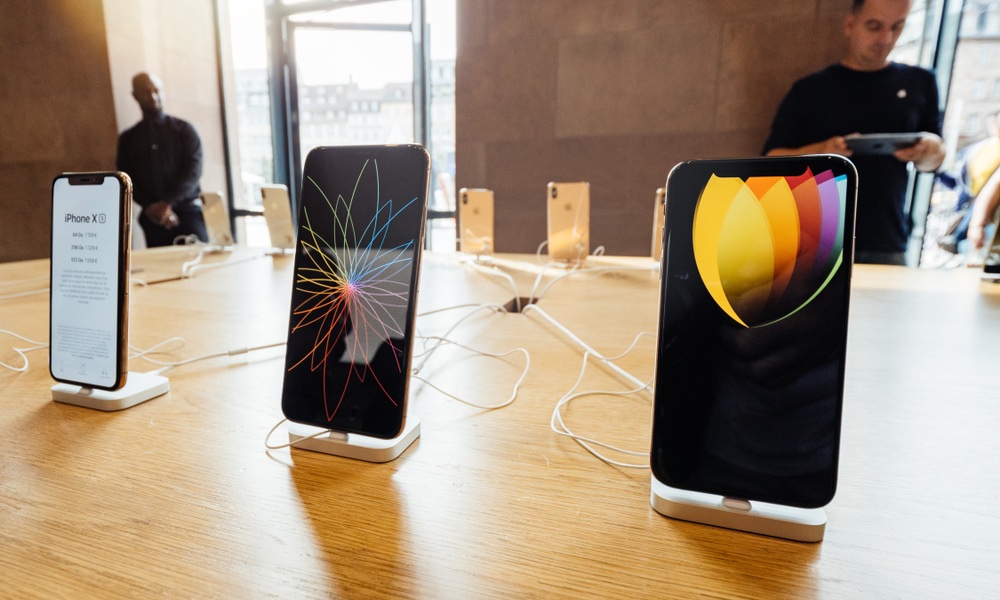How an International Trade Commission Ruling Could Ban iPhone Sales in the U.S.
 Credit: Hadrian / Shutterstock
Credit: Hadrian / Shutterstock
Toggle Dark Mode
The International Trade Commission made two separate rulings in the ongoing Apple and Qualcomm patent battle. And they both came to very different conclusions.
In the first of the two rulings, an ITC judge ruled that Apple had indeed infringed on a Qualcomm patent with the iPhone lineup. More specifically, the ruling — made by Administrative Law Judge MaryJoan McNamara — claims that Apple infringed on claim 1 of Qualcomm patent 8,063,674 in the U.S.
Essentially, the patent relates to power management technology. That’s the portion of a device that manages performance and balances processor needs with battery life.
Notably, the judge has recommended that an import ban should be placed on the iPhone because of that. If that goes through, then iPhones would essentially be banned from sale in the U.S.
But Judge McNamara also found that Apple did not infringe on other Qualcomm patients. Furthermore, she found that some of Qualcomm’s patent claims were invalid.
It’s important to note that this isn’t a final ruling. The decision will now go to another panel of judges before finally being reviewed by President Donald Trump.
The ITC also ruled on a second and separate Qualcomm patent infringement case today. But unlike the first ruling, it can be said that this decision came down on Apple’s side.
Back in September, Administrative Law Judge Thomas Pender ruled that Apple infringed on one Qualcomm patent related to power management, but did not infringe on two others.
Importantly, Judge Pender also argued against an iPhone import ban, claiming that the “public interest factors” outweighed removing the iPhone from sale.
On Tuesday, the judge panel review found that Qualcomm’s patents were not valid due to “clear and convincing evidence” from Apple. The ITC also added that this specific infringement investigation was officially closed.
The tortuous legal battle between Apple and Qualcomm doesn’t just have speculative repercussions, either.
It’s likely one of the primary reasons that Apple is looking to expand its operations in Qualcomm’s backyard. Amid rumors of the Cupertino tech giant developing its own modem technology to compete with Qualcomm, that fact may prove to become more important as the industry transitions toward 5G technology.






